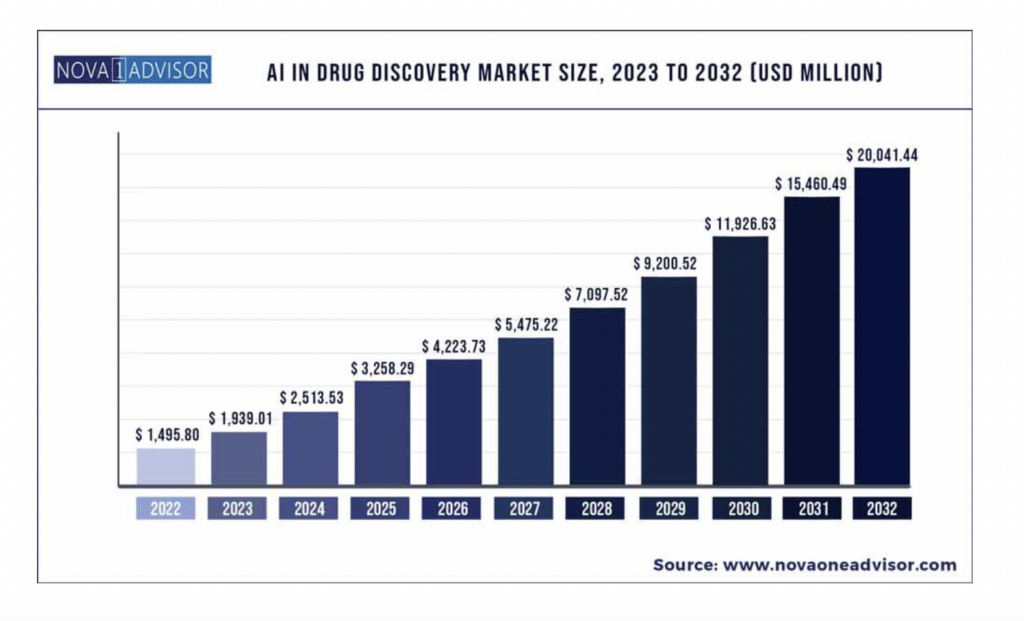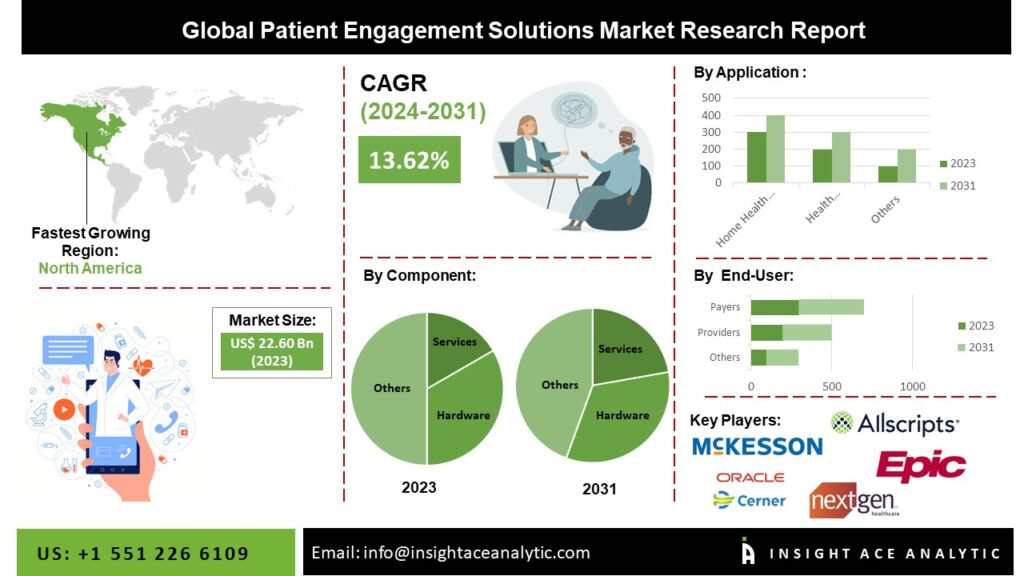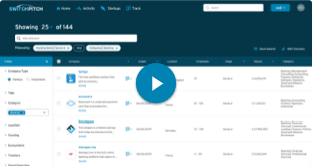
What if the biggest trends in the healthcare industry and growth opportunities weren’t hidden within R&D labs, but out in the world of startups? As the pharmaceutical and healthcare industries face growing pressure to innovate faster, reduce costs, and meet heightened patient expectations, forward-thinking companies are breaking from tradition.
They’re turning to specialized startup partnerships to drive transformative changes in areas like drug discovery, clinical trials, and patient engagement. What has previously been unimaginable just a few years ago is a reality today, thanks to new technologies. In this article, you’ll find a data-backed roadmap to the future of healthcare innovation.
Every trend and statistic included here is directly linked to the future of healthcare. Let’s get into it.
Key Takeaways
Source: SwitchPitch proprietary data available on the platform
The top trends in the healthcare industry and pharmaceutical field are driven by emerging technologies, innovative startups, and evolving patient expectations. This report, based on data from SwitchPitch’s analysis of over 450,000 startups, will explore the future of healthcare, with a focus on key insights into current health trends and future developments.
Notably, we can already see investments in drug discovery, clinical trial optimization, data analytics, and precision medicine. Let’s explore these findings in depth, below.
1. Current Health Trends in Drug Discovery (24% of Startups)

Drug discovery represents the largest category in healthcare partnerships, as there’s a persistent focus on identifying effective therapeutic candidates. While traditional drug discovery timelines can take up to 12 years, artificial intelligence (AI) has shown potential to reduce this significantly.
According to a recent study, AI-based drug discovery can decrease R&D costs by as much as 50% while improving the accuracy of candidate selection. In this sense, machine learning and predictive modeling tools, like those developed by startups such as ProteinQure and Dyno Therapeutics, are transforming the landscape by modeling complex molecular interactions and designing custom gene therapy vectors.
For healthcare enterprises, integrating AI-driven platforms, such as Atomwise or Schrödinger, can streamline R&D and accelerate the discovery process, while saving valuable time and resources in the process. As per our research, this is one of the top healthcare industries trends. We expect to see faster development cycles and quicker access to life-saving treatments in the near future.
Our pro insight? Companies will invest even more in AI platforms that offer cloud-based modeling to reduce lab trial dependency, thereby cutting overhead costs and accelerating time-to-market for new drugs.
Find them all on SwitchPitch – the go-to startup marketplace and scouting tool for enterprise-level teams.
2. Emerging Trends in Clinical Trials and Patient Recruitment (16% of Startups)
Another notable trend in the healthcare industry revolves around decentralized trials, focusing on inclusivity and patient-centric approaches. The FDA’s recent guidelines advocating for DCTs and the significant expected investments in this area reflect the regulatory support for these innovations even more. Decentralized clinical trials (DCTs) are reshaping healthcare market trends by allowing remote patient participation and improving trial accessibility.
- Startups like TrialSpark and Deep 6 AI are using AI to match patients to trials based on electronic health records, ensuring more representative trials.
- Similarly, startups like Yonalink help streamline recruitment and enhance trial precision, which can yield more reliable data and potentially accelerate FDA approval.
3. Data Analytics and AI Transforming the Healthcare Industry (16% of Startups)
Data analytics and AI are at the heart of current trends in healthcare and other industries, such as CPG, driving insights from massive datasets that inform patient needs and optimize R&D processes.
With many pharmaceutical leaders viewing AI as a pivotal driver for revenue growth, it’s clear that this technology will be the key driver behind improved operational efficiency and better decision-making. From a people-first perspective, more than 44% of healthcare participants are willing to trust this technology in healthcare.
How so? AI algorithms can analyze multi-omic data, spanning genomics, proteomics, and more, which allows for more precise biomarker identification. Platforms like Benevolent AI and WhizAI empower companies to use real-world data, uncover patterns in patient outcomes, and adjust treatment plans accordingly.
With tools such as SAS Analytics or IBM Watson Health allowing enterprise-level data analysis, patient targeting, and optimizing supply chains in the healthcare industry, this technology’s impact is looking quite promising.
4. Precision Medicine is Part of the Future of Healthcare (12% of Startups)
One of the top future trends in healthcare precision medicine, truly redefining treatment by allowing therapies tailored to genetic and environmental factors. The precision medicine market is already showing promising advancements in genomics and biomarker analysis, and companies like Sano Genetics and Lantern Pharma are spearheading this shift with platforms that provide individualized treatment insights.
In a nutshell, precision medicine allows pharma companies to significantly improve treatment outcomes, particularly in oncology, where genetic profiling has led to targeted therapies like HER2 inhibitors for breast cancer. To align with the future of healthcare technology, personalized treatment options that meet evolving consumer expectations are non-negotiable. But for that, you need to balance innovation, quality of service, and the right partnerships.
Drive your organization forward with the right partnerships and innovations to lead in personalized healthcare. 👇
5. Innovative Drug Delivery Systems Drive Medical Trends Further (8% of Startups)
Another one of the top healthcare market trends is driven by startups that are transforming drug delivery systems. As patient expectations for precision and convenience rise, innovative drug delivery systems are gaining traction, with startups developing solutions that enhance efficacy, adherence, and monitoring. This area of healthcare innovation extends beyond traditional delivery methods to include biocompatible materials, digital tracking tools, and smart technology, all of which address the critical issue of patient non-adherence.
Companies like AmacaThera and Closed Loop Medicine are leading the way with platforms that combine pharmaceuticals with digital therapies:
- For instance, Closed Loop Medicine’s integrated solution personalizes medication dosing based on real-time health metrics, so that each patient receives the optimal dose and frequency.
- 3M Drug Delivery Systems is also pushing boundaries by incorporating smart inhalers and wearable injectors. Smart inhalers, equipped with Bluetooth-enabled sensors, track inhaler usage and remind patients when to take doses
6. Biotech and Gene Therapy Leading the Future of Healthcare (12% of Startups)
Gene therapy, supported by regulatory milestones like the FDA’s approval of the first CRISPR-based drug, is one of the top healthcare market trends to watch. While relatively new, gene therapy has real potential to offer cures for genetic diseases. CRISPR and mRNA technologies have shown promise in treating complex conditions like cancer and blood disorders. Companies like Kernal Biologics and GentiBio are pioneering solutions that address unmet needs in genetic disorders
- Gene therapy is transforming healthcare by offering potential cures for genetic diseases that were once considered untreatable. The field is making substantial strides, especially with the FDA’s recent approval of CRISPR-based therapies, marking a breakthrough in gene-editing technology for diseases like sickle cell anemia.
- CRISPR (Clustered Regularly Interspaced Short Palindromic Repeats) allows scientists to edit genes with unprecedented precision, making it possible to “correct” genetic mutations at their source. For companies looking to enter the gene therapy market, forming strategic alliances with CRISPR technology providers like Editas Medicine can open doors to advanced gene-editing applications and fast-track R&D.
7. Digital Health and Patient Engagement – Major Healthcare Market Trends (12% of Startups)

Digital health integrates technology like wearable devices, smart pill bottles, and mobile health apps to empower patients and allow providers to track health data in real-time. Tools like these facilitate better adherence, patient engagement, and preventive care.
Enterprises see digital health as a direct route to improved outcomes and cost-efficiency.
- AdhereTech, for example, uses smart pill bottles to send reminders and alerts to increase adherence. All such solutions help reduce complications, improve patient outcomes, and gather actionable data for continuous care improvements.
- What’s more – advances in wearables, like Fitbit Health Solutions and Apple HealthKit, allow providers to track health metrics such as heart rate and sleep quality, which improves personalized care. This healthcare trend supports a broader shift toward preventive and continuous health management.
Drive Future-Focused Healthcare with the Right Startup Partnerships
The healthcare industry is moving at a speed comparable to the industrial revolution, with startup partnerships driving innovation across areas such as drug discovery, clinical trials, precision medicine, and digital health. Our tip? Embrace these healthcare trends to deliver personalized, efficient care that meets customer demands. For any company looking to secure long-term survival, it’s the only way forward.
About SwitchPitch
SwitchPitch’s CRM platform enables healthcare enterprises to identify and collaborate with innovative startups, ensuring that they stay ahead of the curve and meet industry demands.


